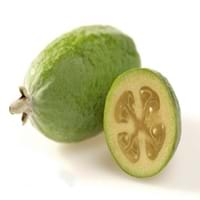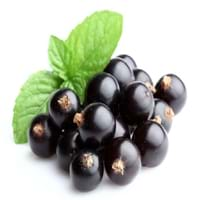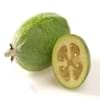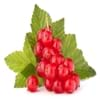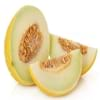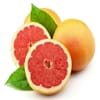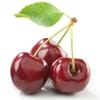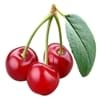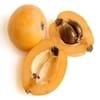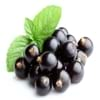Health Benefits
Anti depressant, Cancer prevention, Reduces nervous tension, Treatment of alzheimer's disease, Treatment of Lung disease
Arthritis treatment, Cures gastro-intestinal troubles, Diarrhea treatment, Gout treatment, Heart care, Kidney stone treatment, Liver health, Muscle pain relief, Treatment of alzheimer's disease
General Benefits
Digestive aid, Helps in weight loss, Improves blood circulation, Strengthens bones, Treatment of common cold
Anti oxidant properties, Anti-inflammatory properties, Boosts immune system, Cures fever, Eye care, Fights against infections, Improves blood circulation, Improves eye vision, Maintains healthy cholesterol level, Treatment of common cold
Skin Benefits
Brightens and lightens complexion, Skin rejuvenation
Anti-aging benefits, Brightens and lightens complexion, Skin cleansing, Treatment of dark spots, Treatment of skin diseases
Hair Benefits
Promotes longer and healthier hair, Protects hair
Acts as moisturizer, Prevents hair loss, Promotes longer and healthier hair, Protects hair, Rejuvenates scalp, Remedy for split ends
Allergy Symptoms
NA
Abdominal pains, Asthma, Conjunctivitis, Eczema, Itching, Nasal polyps, Runny nose, Skin rash, Swelling
Side Effects
Allergic reaction
Diarrhoea, Nausea, Vomiting, Might cause change of urine color
Best Time to Eat
As a snack in the late afternoon, Don't consume at night and before bed, Eat the fresh ones, avoid mixing with any other foods, don't eat after meal., Morning time (before lunch)
Best if taken as a breakfast (or empty stomach), As a snack in the late afternoon, Don't consume at night and before bed, Eat the fresh ones, avoid mixing with any other foods, don't eat after meal., Morning time (before lunch)
Vitamin A (Retinol)
Not Available
Vitamin B5 (Pantothenic Acid)
Vitamin B9 (Folic acid)
Not Available
Vitamin C (Ascorbic Acid)
Vitamin K (Phyllochinone)
Not Available
Lutein+Zeaxanthin
Not Available
Calories in Fresh Fruit with Peel
Not Available
Calories in Fresh Fruit without Peel
Not Available
Calories in Frozen Form
Not Available
Not Available
Calories in Canned Form
Not Available
Not Available
Season
Autumn, Winter
Summer
Varieties
Anatoki, Gemini, Kaiteri, Kakariki, Pounamu, Unique, Apollo, Den's Choice, Kakapo, Mammoth, Opal Star, Triumph and Wiki Tu
Ben Sarek, Ben Lomond, Ben Hope, Ben Connan, Ben Avon, Ben Gairn, Ben Dorain, Ben Hope, Ben Sarek, Ben Tirran, Big Ben, Ebony, Foxendown, Titania and Ben Alder
Origin
Argentina, Brazil, Paraguay, Uruguay
Asia, Europe
Grows on
Not Available
Trees
Soil Type
Clay loam, Gravely loam, Sandy
Sandy loam, Well-drained
Climatic Conditions
Cold, Warm
Cold, Moist
Facts about
- Feijoa is called as "pineapple guava" in some countries.
- Feijoa tree is an ornamental plant that can also be used as hedge & windbreak.
- All parts of feijoa fruit are edible(skin is mostly discarded).
- The life of black currant plant is 20-30 years.
- Oil extracted from black currant seeds is used in production of skin care products.
- Black currant berries are major source of food for the birds.
Cocktails
Yes
Not Available
Top Producer
New Zealand
Russia
Other Countries
Australia, Azerbaijan, India, Japan, United States of America
New Zealand, Poland, United Kingdom, United States of America
Top Importer
China
Not Available
Top Exporter
New Zealand
Not Available
Botanical Name
Acca sellowiana
Ribes nigrum
Synonym
Feijoa sellowiana or Orthostemon sellowianus
R. nigrum forma chlorocarpum or R. nigrum var. chlorocarpum or R. nigrum var. sibiricum or R. cyathiforme or R. olidum
Subkingdom
Tracheobionta
Tracheobionta
Division
Magnoliophyta
Magnoliophyta
Class
Magnoliopsida
Magnoliopsida
Order
Myrtales
Saxifragales
Family
Myrtaceae
Grossulariaceae
Species
A. sellowiana
R. nigrum
Generic Group
Myrtle
Saxifrage
Difference Between Feijoa and Blackcurrant
We might think that Feijoa and Blackcurrant are similar with respect to nutritional value and health benefits. But the nutrient content of both fruits is different. Feijoa and Blackcurrant Facts such as their taste, shape, color, and size are also distinct. The difference between Feijoa and Blackcurrant is explained here.
The amount of calories in 100 gm of fresh Feijoa and Blackcurrant with peel is Not Available and 63.00 kcal and the amount of calories without peel is 55.00 kcal and Not Available respectively. Thus, Feijoa and Blackcurrant belong to Low Calorie Fruits and Low Calorie Fruits category.These fruits might or might not differ with respect to their scientific classification. The order of Feijoa and Blackcurrant is Myrtales and Saxifragales respectively. Feijoa belongs to Myrtaceae family and Blackcurrant belongs to Grossulariaceae family. Feijoa belongs to Acca genus of A. sellowiana species and Blackcurrant belongs to Ribes genus of R. nigrum species. Beings plants, both fruits belong to Plantae Kingdom.
